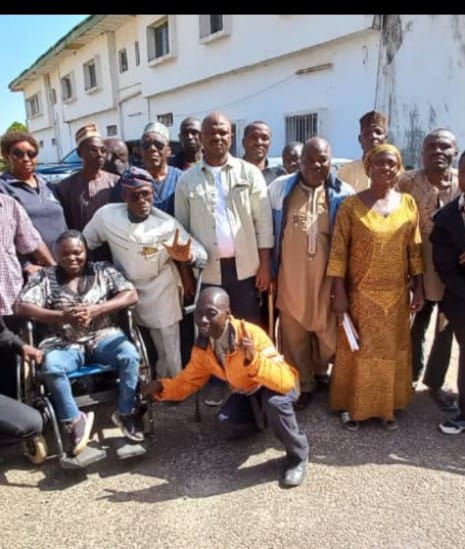By Damilola Olawoyin,
Embarking on a profound exploration of Nigeria’s socioeconomic landscape, we encounter a disconcerting reality faced by a substantial portion of the population – persons with disabilities. According to the World Health Organization’s 2018 report, approximately 29 million out of Nigeria’s 195 million people grapple with disabilities, with the actual figures likely higher than reported.
Delving into the 2018 Nigeria Demographic and Health Survey reveals a nuanced perspective, where 7 percent of household members above the age of five and 9 percent of those aged 60 or older encounter difficulties in functional domains such as seeing, hearing, communication, cognition, walking, or self-care. Moreover, 1 percent experience severe impediments, struggling or unable to function at all in at least one domain.
A rapid social assessment brings to light a troubling narrative – persons with disabilities face substantial barriers to accessing basic services, with attitudinal roadblocks acting as significant hurdles to their socioeconomic inclusion. Existing inclusive policies, where they do exist, are either weak or inadequately implemented, perpetuating a cycle of exclusion.
Adding to the concern is the 2006 Nigerian census, which reported a staggering 2.32% of the population, amounting to 3,253,169 individuals, living with disabilities. This marked increase underscores the pressing need for comprehensive and sustainable intervention strategies.
The landscape of governmental initiatives to address poverty and disability reveals a tumultuous history, with various schemes introduced and subsequently terminated with each change in regime since the return of democracy in 1999. President Muhammadu Buhari, in 2016, sought to break this cycle by institutionalizing social protection programs, leading to the formulation of the National Social Protection Policy (NSPP).
Defined by the policy as a mix of strategies designed to prevent and reduce poverty and socioeconomic shocks, social protection aims to promote livelihoods and a life of dignity throughout the life cycle. Despite these efforts, a glaring gap in accurate data persists, leaving us with unsettling statistics: an estimated 63 percent of adults with disabilities in Nigeria are unemployed, and 30 percent of out-of-school children fall under the category of persons with disabilities, according to the Inclusive Friends Association (IFA).
These distressing figures, coupled with a myriad of socioeconomic challenges faced by individuals with disabilities, demand the attention and concern of every well-meaning Nigerian. The realization that disability can befall anyone, irrespective of financial status or social standing, underscores the imperative for absolute inclusivity across all facets of society.
In this intricate tapestry of socioeconomic dynamics, the call for collective action reverberates, urging us to bridge gaps, dismantle barriers, and foster a society where the inherent dignity and potential of every individual, regardless of ability, are not only acknowledged but celebrated.


